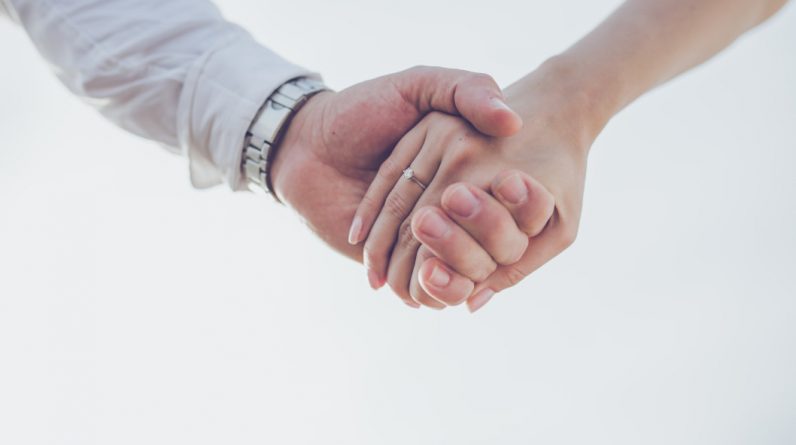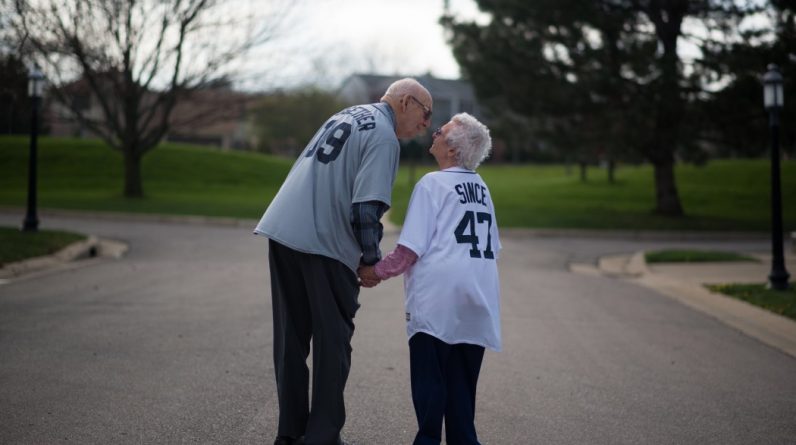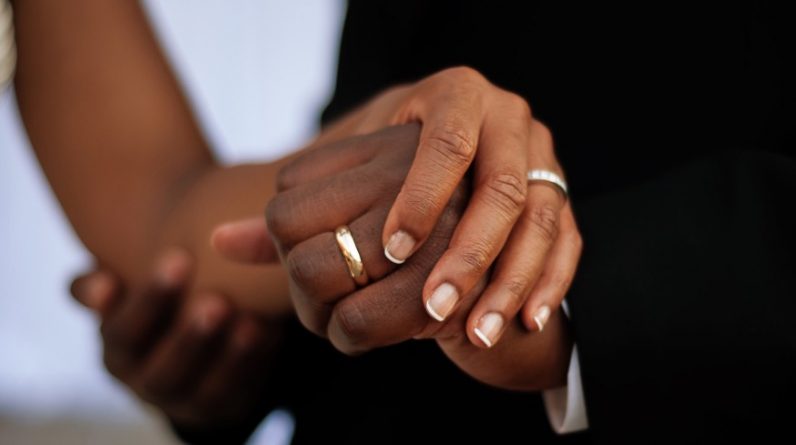
Infidelity, disease, and faith after loss. This isn’t the plot to a drama movie – this
is Jackie and JFK’s real life in its stormiest moments. Back before such relationships became fairly
unheard of, Pulitzer Prize-winning journalist Charles Bartlett was a close friend and confidante
of John F. Kennedy. So much so that, in 1951, he played matchmaker
for what would become one of America’s most iconic couples. It was at one of Bartlett’s dinner parties
that John F. Kennedy first met Jacqueline Bouvier. At the time, Bouvier was working as a reporter
for the Washington Times-Herald. She later explained to Edward R. Murrow, her
professional interests came before any romantic ones.
Shortly after meeting Kennedy, Bouvier interviewed
him for her paper. When Murrow asked whether marriage or interviews
with a politician required more diplomacy, Bouvier let her husband answer. “Well, now, which requires the most diplomacy:
to interview senators or to be married to one?” “Well — ” “To be married to one, I bet.” Bartlett largely kept JFK’s secrets. But once evidence of Kennedy’s many love affairs
came to light, Bartlett mused that his friend might not have been suited to marriage, but
that he never would have become president without Bouvier by his side. “While Jack won the votes, she won the hearts
of America.” John F. Kennedy and Jackie Bouvier dated for
two years before announcing their engagement on June 24, 1953.
As both were members of prominent society
families, the announcement was a notable affair, and its historical significance only increased
as the Kennedys rose to political power. So it’s perhaps understandable that a venue
would claim to be the spot where Kennedy first popped the question — and that there might
be some competition for that claim. Two stories exist around where and how Kennedy
proposed to Bouvier. The Omni Hotels and Resorts chain claims that
it happened at one of their hotels. In their version, the couple was staying at
Omni Parker House in Boston, Massachusetts, and eating in the hotel restaurant when Kennedy
got down on one knee and presented Bouvier with a custom-made emerald and diamond ring. Omni claims it was the most romantic moment
in the hotel’s history. “We insist that this was the formal proposal
and all the rest are alternative facts.” Unless it happened at Martin’s Tavern. Martin’s is an historic restaurant in Georgetown
that was frequently patronized by Kennedy and Bouvier. The restaurant claims the proposal happened
in Booth Three.
They even got the statement of a witness:
former ambassador Marion Smoak. But Smoak didn’t claim to have seen the proposal,
only that he saw the couple at Martin’s on June 24th, and that news of the engagement
circulated through the restaurant. The relationship between John F. Kennedy and
Jackie Bouvier was complicated from the beginning. They had similar backgrounds, shared a knack
for social engagements, and had a genuine attraction and affection for one another. But their engagement and marriage was as much
a political consideration as a personal commitment. According to Robert Dallek’s An Unfinished
Life: John F. Kennedy, 1917-1963, Kennedy would have been happy to remain a bachelor,
and at least one close friend suspected he would have had his 1952 Senate bid failed.
But it didn’t, and the realities of the time
required any senator intent on higher office to be married. Kennedy was driven even then, although his
father worried that his son would still get cold feet on the way to the altar. “You’re pretty much in love with him, aren’t
you?” “Oh, no.” For her part, Bouvier was under no illusions
about the political component of her relationship with Kennedy. “She wrote in her diary that she had an intimation
that Jack would have a profound and possibly disturbing effect on her life.” In letters to Irish priest Joseph Leonard,
she expressed amazement at the level of ambition on display among the political class she encountered
through Kennedy. She compared her fiancé to Macbeth due to
the enormity of his appetite for high office.
Bouvier also confided to Leonard that she
had reservations about the impending marriage. Her own father was a notorious philanderer
whose cheating took a heavy toll on his wife, and Bouvier saw the same quality in Kennedy. When John F. Kennedy and Jackie Bouvier became
Mr. and Mrs. Kennedy on September 12, 1953, they did so in style. Their wedding was held at St. Mary’s Catholic
Church in Newport, Rhode Island, and the reception at the Victorian Hammersmith Farm estate. Both boasted a massive attendance — the
wedding had over 800 guests, the reception over 1,200. Pope Pius XII sent a blessing to be read,
Robert F. Kennedy was the best man, and the wedding cake was over 4-feet tall. Musical entertainment included noted tenor
Luigi Vena and the Meyer Davis orchestra. Jackie’s dress, accentuated by her grandmother’s
veil and a few choice pieces of jewelry gifted by John, remains a model for wedding gowns
to this day, according to Vogue.
The dress was designed by Ann Lowe, one of
the first leading black fashion designers, who built a career out of creating fashions
for women of the social register. For how celebrated the look has become, it
was actually a hastily assembled replacement for the original dress, destroyed by a burst
pipe. Lowe’s closest collaborator on the dress wasn’t
the bride, but Joseph Kennedy, who subsequently left Lowe’s name out of the wedding coverage
he arranged.
The Kennedys honeymooned in Acapulco. John messaged his parents from there to report
that everything was going well. According to Fredrik Logevall’s JFK: Coming
of Age in the American Century, 1917-1956, Kennedy’s exact words were: It’s no secret by now that John F. Kennedy
was not a faithful husband. Within 15 months of marrying Jackie Bouvier
Kennedy, he was back to his womanizing ways. “Where sex was concerned, John Kennedy thought
he was untouchable. Invulnerable.” So wandering was his eye that he reportedly
left his wife alone at parties to fool around with female guests. And, in 1956, he carried on with several women
on his yacht even as Jackie suffered through delivery of their stillborn child. To what extent Jackie knew about John’s infidelities,
and how she felt about them, is a matter of some contention among journalists and historians. Author Sally Bedell Smith wrote in Vanity
Fair that, while Jackie was well aware of the affairs, she was often happy to feign
ignorance.
She would occasionally make private jokes
or, in more unhappy moments, seek counseling from cardiologist friend Frank Finnerty, but
she was resigned to it. She reportedly told Adlai Stevenson, Others have reported that Jackie was more
confrontational about the affairs. Author J. Randy Taraborrelli told People that
tensions became so pitched that Jackie considered divorce in 1956, after the stillbirth. Her sister and her mother — both aware of
John’s affairs — convinced her to stay. They considered being cheated on an occupational
hazard of being married to a powerful man. In a letter to Fletcher Knebel, Jackie Kennedy
described herself and her husband as icebergs: a small portion of their lives visible, the
greater mass submerged.
Among the matters kept below was how difficult
it was for them to conceive a child. Jackie suffered a miscarriage in 1955 and
delivered a stillborn daughter in 1956. When they did have a son, John Jr., he was
born prematurely and suffered from weak lungs in early life. By the time John Jr. and their daughter, Caroline,
came into the world, JFK was far less callous about his wife and children.
He was at Jackie’s side with her favorite
flowers for Caroline’s birth and noticeably swelled with emotion when discussing his daughter. The couple were expecting a third child in
1963. But on August 7 — 20 years to the day that
JFK was rescued during World War II — Jackie went into premature labor. Their son, Patrick, came six weeks early and,
despite the best efforts of doctors, died of hyaline membrane disease within days. Both parents were devastated, but family and
friends reported that the tragedy did leave one positive legacy. In the months remaining before JFK’s assassination,
he and Jackie were much more publicly affectionate with one another. Some of the ice, it seemed, had emerged from
the depths. As the youngest man ever elected to the presidency,
John F. Kennedy was seen by the public as a healthy, clean-cut shot of energy into the
highest levels of power. But contrary to the image he projected, Kennedy’s
presidency — and his marriage — were dogged by his myriad health conditions. In 2019, PBS published a list of all the physical
ailments he suffered, including many that were kept well-hidden from the public eye
during John’s lifetime.
“If the public knew how many medical problems
he had, I think it would have destroyed his presidential ambitions.” Besides a bout of scarlet fever in his youth,
the president suffered from spastic colitis, prostate and urinary tract issues, allergies,
such severe lower back pain that he was initially rejected from military service in World War
II, and Addison’s disease, a life-threatening hormonal deficiency. “He was so ill that his father had put cortisone
treatments in safe deposit boxes around the country if he ever needed them because of
his Addison’s disease.” The steroids used to treat his Addison’s led
to osteoporosis, which only further damaged Kennedy’s back. Seven surgeries between 1944 and 1957 couldn’t
fix it. And he fell so ill after one procedure that
a priest was called to administer last rites. The steroids and other medications came with
side effects. In 1962, according to The Atlantic, Jackie
complained to her husband’s gastroenterologist that the antihistamines used for his allergies
resulted in depression.
The doctor’s answer was a two-day treatment
with the anti-psychotic Stelazine, with reported total success. But the rest of John’s many ailments would
follow him to the end of his days. It might well be assumed that a president
and vice president would get along, or at least have confidence in one another. After all, the president must have confidence
that, should anything happen to them, their running mate could serve as chief executive
of the world’s most powerful country. But according to a series of interviews given
by Jackie Kennedy in 1964, neither she nor her husband thought much of Lyndon B.
Johnson. According to Jackie, John not only didn’t
like Johnson but never wanted him as a running mate and actively feared for the country should
he become president. John discussed his worries with his wife and
his brother, attorney general Robert Kennedy. No thought was given to dropping Johnson from
the 1964 ticket, but the Kennedy brothers discussed ways they might maneuver around
Johnson to find a new standard-bearer for the Democratic party for the 1968 presidential
election.
The same interviews, kept private by the Kennedy
family for decades, revealed Jackie’s thoughts about the second lady, too. According to The Daily Beast, she described
Lady Bird Johnson as so devoted and obedient to her husband that she seemed more like a
hunting dog than a marriage partner. Context is important, in this case. The interviews were recorded during tensions
between Johnson and Robert Kennedy, and Jackie separated Johnson’s deficient political skills,
in her view, from his personal qualities. A marriage connected to a demanding job, let
alone the presidency, will inevitably face some stress. But the ongoing health woes and extramarital
affairs of John F. Kennedy only made things more difficult for Jackie Kennedy. The degree of independence Jack maintained
shocked her in the early days of their marriage. And in private correspondence with Father
Joseph Leonard, Jackie confided that life with a powerful public figure was taking its
toll.
As reported by The Irish Times, she wrote, Despite the many tensions and complications
in their marriage, John and Jackie were always able to reconcile. “I am the man who accompanied Jacqueline Kennedy
to Paris, and I enjoyed it.” Jackie turned for help to the Catholic faith
that she shared with her husband. In one of her letters to Leonard, Jackie cited
her religion as helping her to find some good after the tragedy of her stillborn daughter
Arabella. She and John grew closer together. But after John’s assassination, she suffered
a crisis of faith. She told Leonard that she felt bitter and
that only the hope of seeing her husband again sustained her belief.





